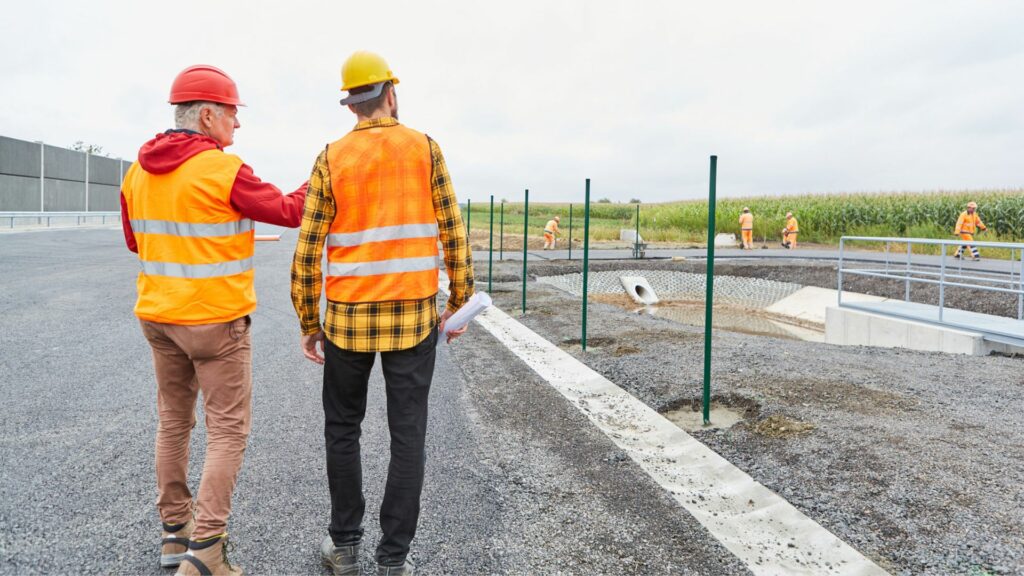Project Managers and Construction Managers perform different tasks and responsibilities. Understanding the differences between the two roles is critical, especially in construction firms hoping to scale.
Small construction firms tend to have one individual working as a project and construction manager. While this is typical of most small businesses across industries, it could hold the firm back because each role is unique and requires a unique set of talents.
Construction managers and project managers have different tasks, responsibilities, and expertise and use different software to do their job.
Table of Contents
Key differences between project managers and construction managers
A construction manager is usually an expert in building trades such as general construction, electrical, plumbing, and carpentry. They manage the day-to-day operations relating only to the construction portion of the project.
A construction manager is like a project manager with expertise and knowledge in a specific construction area. They are involved in a project from the pre-construction phase to the punch list.
A construction manager is also responsible for managing personnel at the construction site. They ensure timely delivery of materials to prevent delays. They also ensure that tools and other resources are available and properly allocated.
On the other hand, a project manager manages all the aspects of a real estate project from start to finish. They are involved in the initial planning, site selection and analysis, design, procurement, building, and the actual move.
The project manager manages the project budget and schedule and is typically aware of potential risks, and works actively to mitigate them. The project manager guards the budget and schedule to prevent extra costs and delays.
The project manager often has a better understanding of the client’s goals than the construction manager because of their early involvement in the project. Besides, project managers tend to work more closely with the client and understand their needs outside of their real estate.
The chief difference between a project manager and a construction manager is the level of authority. A construction manager oversees all construction activities and reports to the project manager.
The project manager is more responsible for the project and manages matters beyond construction activities. This means that the project manager supervises the construction manager.
Project manager
The main role of a project manager is to ensure that the project is delivered on time and within budget. A project manager plans and supervises construction projects from start to finish. They organize and manage construction processes, ensuring everything is done efficiently and promptly.
A project manager understands construction methodologies and procedures and can coordinate a large team of professionals with varying expertise. A project manager should be very organized and highly analytical because they must handle complex construction issues.

Responsibilities
The project manager is responsible for obtaining permits and licenses from the authorities. They also negotiate contracts with vendors and suppliers to reach favorable agreements.
The project manager also hires contractors and other office staff and assigns them responsibilities. They also supervise and guide laborers and mechanics where necessary.
In addition, the project manager is responsible for planning construction operations and ensuring adherence to the schedule. They must collaborate with architects and engineers to determine the project specifications. Their goal is to meet all deadlines.
The project manager is also responsible for determining and acquiring materials, workforce, and equipment. They must acquire all materials and equipment timely to avoid inadequacies that could cause delays.
The project manager is responsible for evaluating construction progress and preparing detailed reports for the property owner. They also ensure compliance with health and safety standards.
Salary
The average salary for a project manager is $91,370, but it can be as high as $159,560. Residential construction projects may pay a lower salary of $84,620.
Construction manager
A construction manager is generally a construction expert with an understanding of building processes. They cover all the details of the construction process from groundbreaking to handover.
A career in construction management is ideal for individuals that enjoy design and construction and like to lead a team of workers.
Responsibilities
The construction manager’s main responsibility is to oversee the day-to-day construction activities involved in a project.
Construction managers also prepare, supervise and approve the development and implementation of PEP. In addition, they document any lessons learned throughout the project.
The construction manager also implements the scope of work according to the approved project schedule.
The construction manager monitors the construction progress and reports details to the Project Manager. These details include risks, opportunities, and progress.
In addition, the construction manager documents any changes to project specifications, scope, and drawings. They are responsible for defining clear roles and deliverables for all the team members.
The construction manager also reviews person-hours and duration forecasts to ensure work is completed on schedule.
A construction manager must monitor productivity and schedule performance, investigating reasons for poor performance. They then provide recommendations or modifications to operational procedures to improve performance and efficiency.
The construction manager is also responsible for complying with Health and Safety standards and promoting the same safety culture across the board.

Salary
As with other professions, the salary for a construction worker increases with experience.
Newly trained construction managers are paid between $25,000 and $35,000, while trained construction managers with a few years of experience can be paid between $35,000 and $48,000.
Senior or master construction managers reportedly get paid between $48,000 and $60,000, while self-employed construction managers can make even more by setting their rates based on value.
Note that salaries vary based on location, employer, and overtime hours.
Summary
Construction managers and project managers perform very different roles, but it is easy to confuse the two because both roles tend to overlap in smaller construction firms.
Understanding the difference between a construction manager and a project manager is important, especially for small construction firms looking to scale. You cannot grow if you have people doing the wrong job.
Project managers manage the entire project, while construction managers manage the day-to-day construction processes. The project manager has more responsibility for the project and the client and supervises the construction manager.

